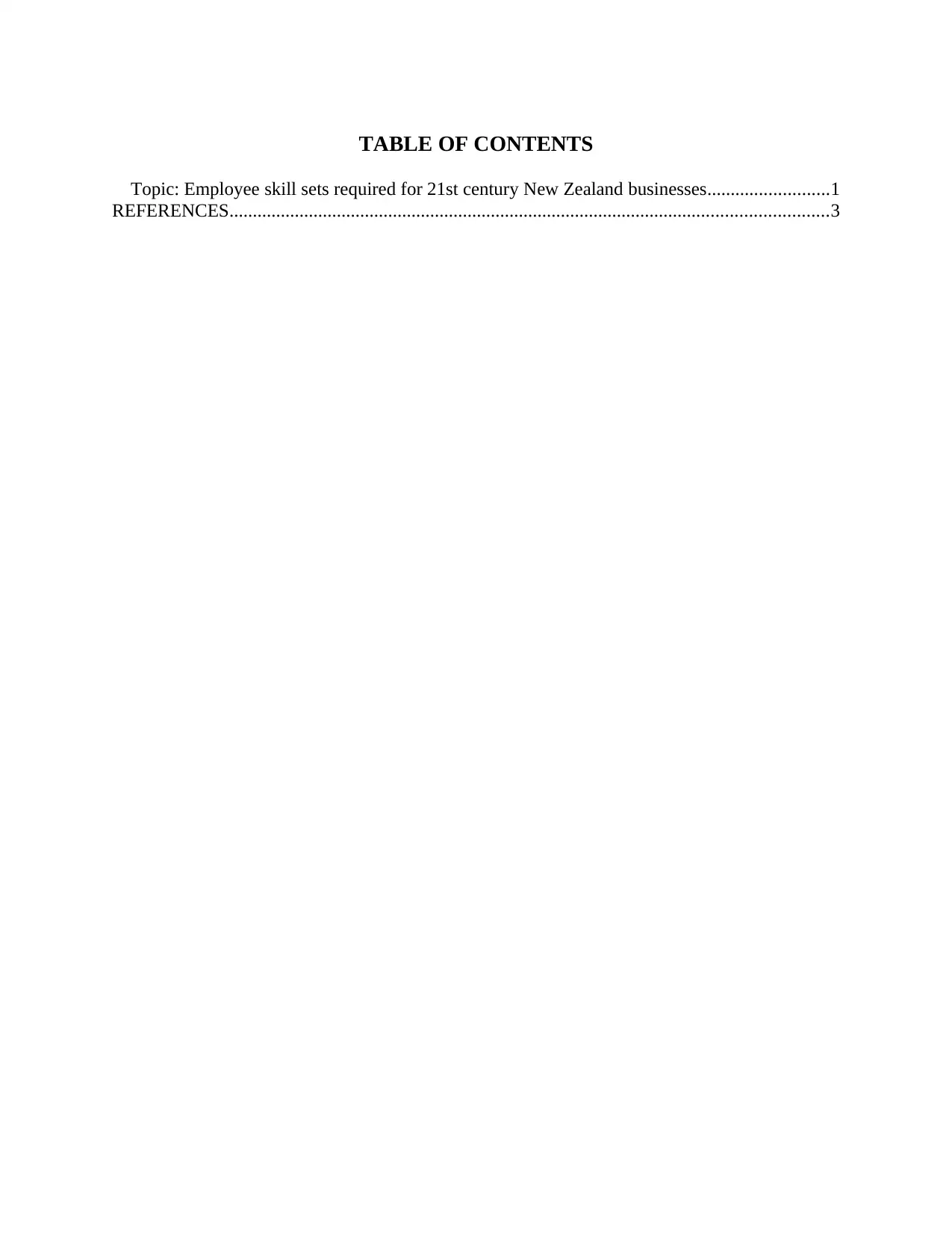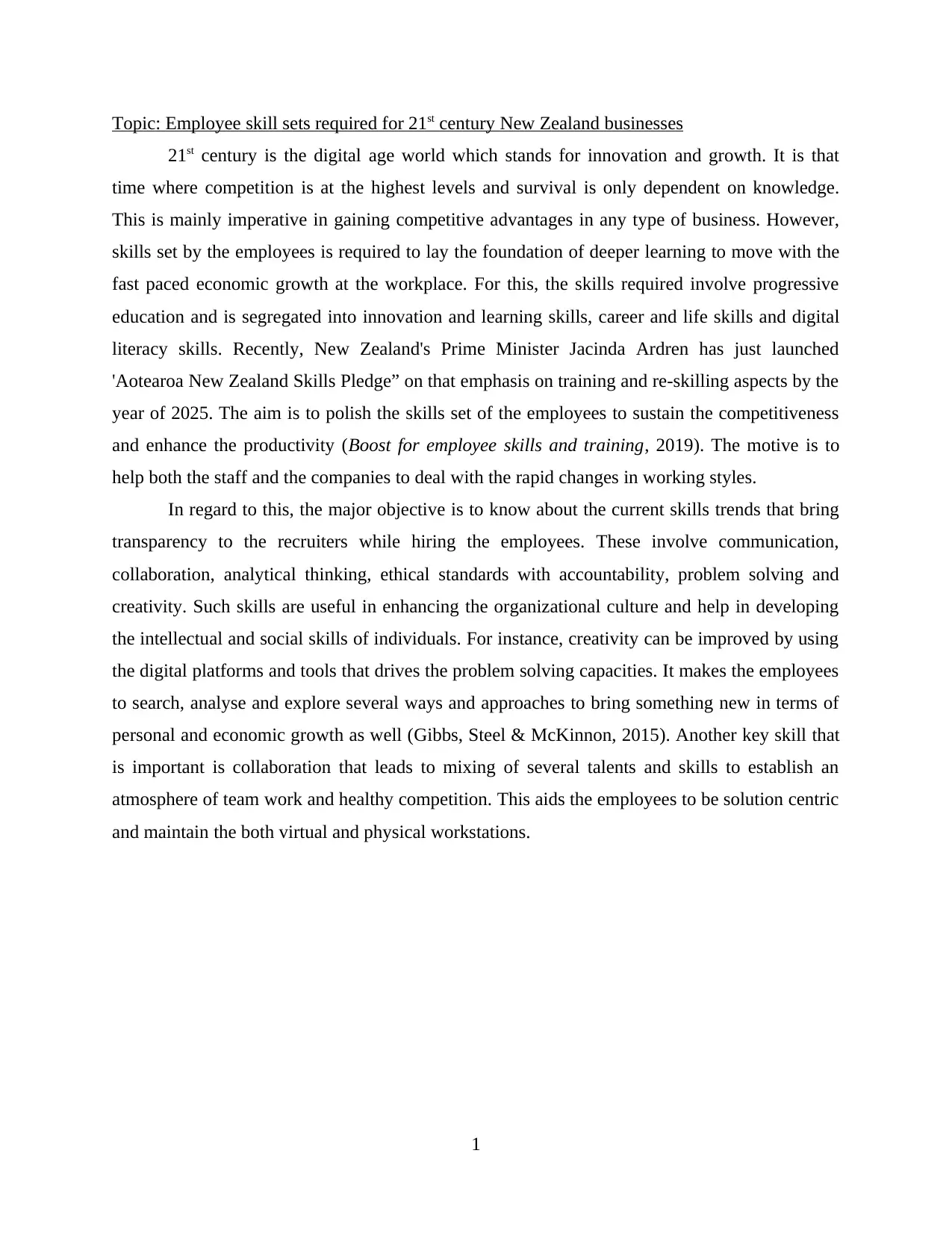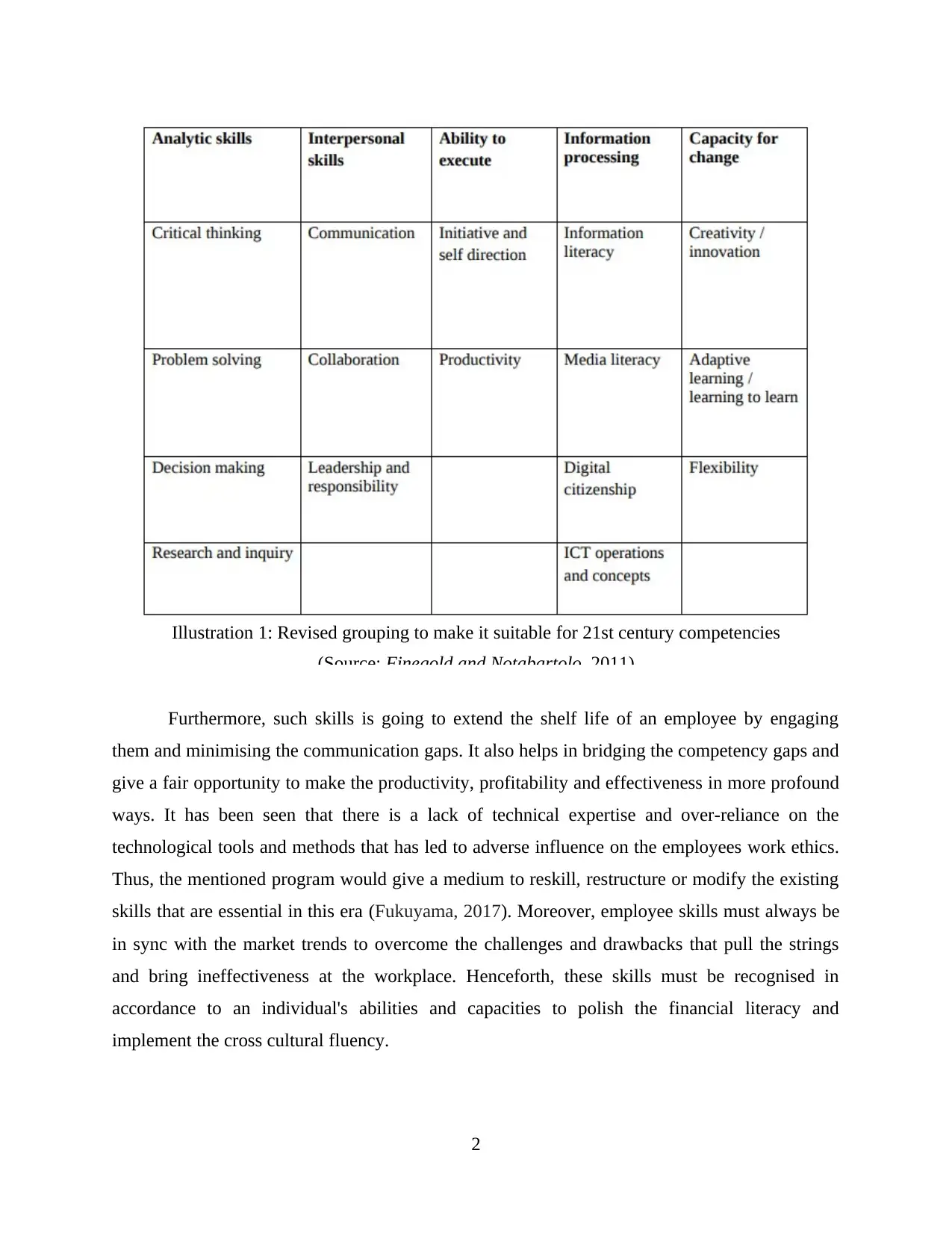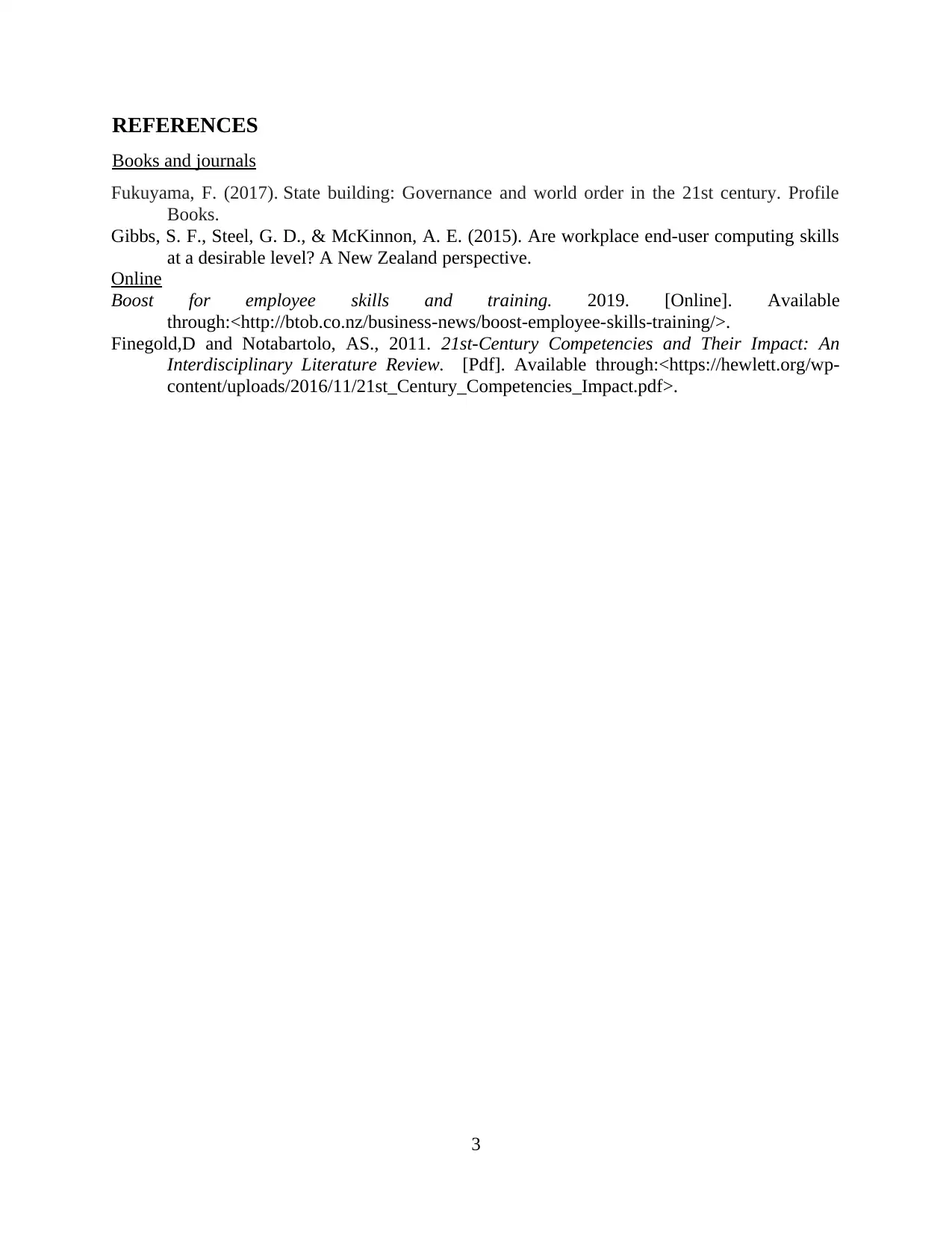Report: Employee Skills for 21st Century New Zealand Businesses
VerifiedAdded on 2021/02/20
|5
|711
|238
Report
AI Summary
This report delves into the critical employee skill sets necessary for New Zealand businesses to thrive in the 21st century, emphasizing the importance of innovation, learning, career, life, and digital literacy skills. It highlights the significance of communication, collaboration, analytical thinking, ethical standards, problem-solving, and creativity. The report references the 'Aotearoa New Zealand Skills Pledge' and discusses the need for employees to adapt to rapid changes in working styles. It emphasizes the importance of reskilling, restructuring, and modifying existing skills to meet market trends and overcome challenges. The report also includes references to relevant books and journals, providing a comprehensive analysis of the topic. The report also highlights the importance of creativity, collaboration and the need for employees to be solution centric and maintain the both virtual and physical workstations.
1 out of 5












![[object Object]](/_next/static/media/star-bottom.7253800d.svg)